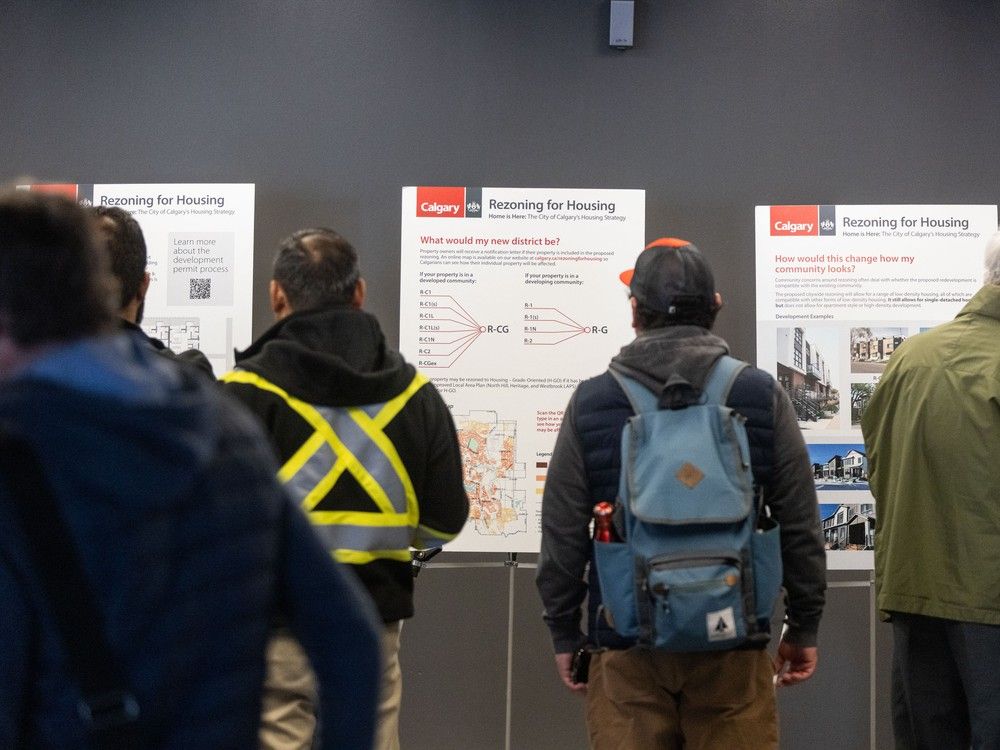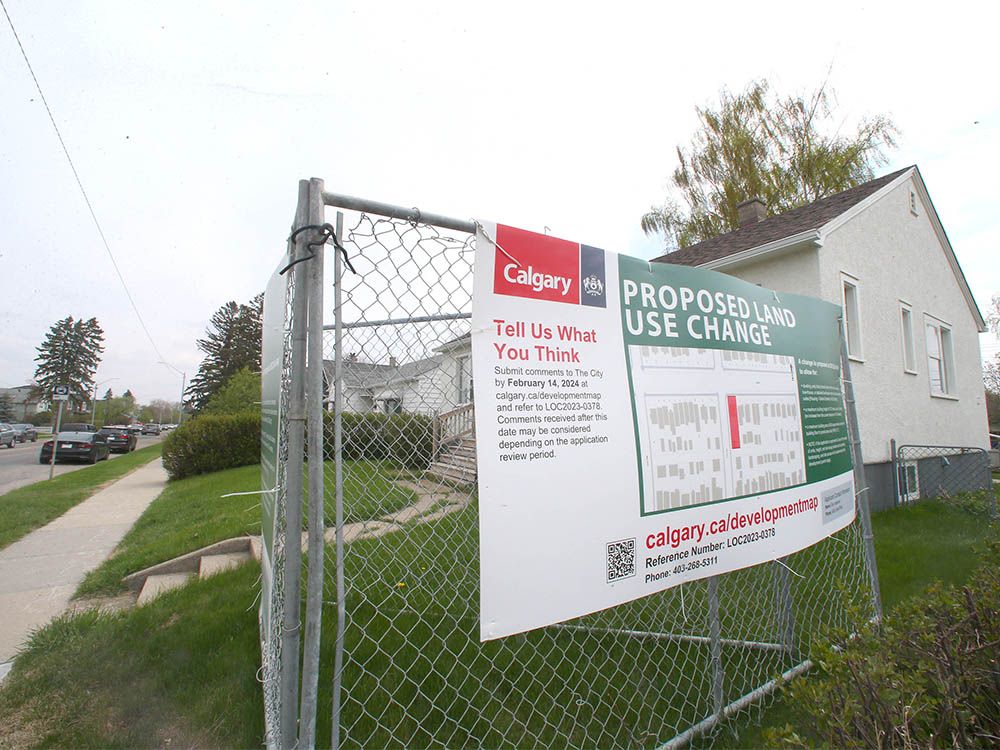You are using an out of date browser. It may not display this or other websites correctly.
You should upgrade or use an alternative browser.
You should upgrade or use an alternative browser.
Cost of housing in Canada
- Thread starter mariomike
- Start date
- Reaction score
- 14,140
- Points
- 1,260
So the answer is to spend more on veterans, seniors, and the unhoused to at least match the amounts for refugees, right?
Right?
Also, at risk of bleeding into the Nijjar thread, I took a quick read of his X posts. Is he being paid by the Indian govt? All of his recent posts are how Nijjar was a “terrorist”.
Quirky
Army.ca Veteran
- Reaction score
- 3,094
- Points
- 1,260
So the answer is to spend more on veterans, seniors, and the unhoused to at least match the amounts for refugees, right?
Right?
wrong.
CountDC
Army.ca Veteran
- Reaction score
- 335
- Points
- 930
That explains the cut to our TD budget.
- Reaction score
- 288
- Points
- 780
I think the stats are the average salary required, not the actual cost of housing.
- Reaction score
- 288
- Points
- 780
Are you recommending we send them back to where they came from? I'm just curious on what a viable solution is for any colour of government to deal with this issue.wrong.
The stats provided are the average costs, not what they are being given to spend on what they want. Why not go after the contractors as money grabbing leaches for providing what is likely the bare minimum service for those inflated amounts of money.
- Reaction score
- 18,917
- Points
- 1,360
Right you are, CL!I think the stats are the average salary required, not the actual cost of housing.
That said, that’s more than thrice the median income of Joe or Jane Canada, which depending on province, sits between 36,000-42,000 +/-, so median Joe or Jane cannot come close to buying just a lot…of nothing…
- Reaction score
- 1,383
- Points
- 1,260
These are the 10 most affordable cities in Ontario and how much money you'd need to make per year to buy a home there:
Really? I’d like to see what $128K gets you there…
I think the stats are the average salary required, not the actual cost of housing.
Right...
In other news,
7 May, 2024
Two Canadian cities made the top 50.
World’s Wealthiest Cities Report 2024

World's Wealthiest Cities Report 2024
The World's Wealthiest Cities Report 2024 features exclusive data highlighting the world’s 50 wealthiest cities and insights from leading wealth sector experts.
- Reaction score
- 7,581
- Points
- 1,160

City administrators recap submissions at public hearing on rezoning
City of Calgary staff are presenting a 'what we heard' report Thursday morning, recapping the 12-day public hearing on blanket rezoning.
Of the 700-plus speakers, 227 spoke in support of blanket rezoning, 458 were opposed and 51 were neutral regarding the proposal.
Despite the opposition....

Council approved blanket rezoning — so what happens next?
Calgary city council approved the blanket rezoning proposal, ushering in a new approach to housing and densification for the municipality.
....
NO. Just NO.
I am not ready to return to the days of kissing the Abbot's ring to get a better hovel and a larger scoop of gruel.
That is the favour that Henry VIII did us all when he shut down the religious corporations that controlled the wool trade and the guilds.

Dissolution of the monasteries - Wikipedia
- Reaction score
- 5,512
- Points
- 1,140
I disagree. So long as people in Toronto control what firearms I can own, I think I should have a say in what homes they can own... Fair is fair after all. Nobody should own a high capacity planet killing home of more than 1500 square feet except the government.
City administrators recap submissions at public hearing on rezoning
City of Calgary staff are presenting a 'what we heard' report Thursday morning, recapping the 12-day public hearing on blanket rezoning.calgaryherald.com
Despite the opposition....

Council approved blanket rezoning — so what happens next?
Calgary city council approved the blanket rezoning proposal, ushering in a new approach to housing and densification for the municipality.calgaryherald.com
....
NO. Just NO.
I am not ready to return to the days of kissing the Abbot's ring to get a better hovel and a larger scoop of gruel.
That is the favour that Henry VIII did us all when he shut down the religious corporations that controlled the wool trade and the guilds.

Dissolution of the monasteries - Wikipedia
en.wikipedia.org
On a more serious note, I think there is a reasonable "regulated" housing market that can be achieved while not preventing those with the means from buying/building whatever they want.
For those who own now and thing they're "set", remember that as the number of people who feel locked out of the "Canadian dream" increases, the likelihood of your dream being taken to help someone else increases rapidly. It's in the self interest of home owners to find a reasonable middle ground between the current market and something sustainable.
- Reaction score
- 7,581
- Points
- 1,160
I disagree. So long as people in Toronto control what firearms I can own, I think I should have a say in what homes they can own... Fair is fair after all. Nobody should own a high capacity planet killing home of more than 1500 square feet except the government.
On a more serious note, I think there is a reasonable "regulated" housing market that can be achieved while not preventing those with the means from buying/building whatever they want.
For those who own now and thing they're "set", remember that as the number of people who feel locked out of the "Canadian dream" increases, the likelihood of your dream being taken to help someone else increases rapidly. It's in the self interest of home owners to find a reasonable middle ground between the current market and something sustainable.
Who guaranteed you a job or a life in the location of your choice?
The CAF sends you to where the jobs are. I relocated on my own hoof to where the jobs were. Sometimes that meant working away from my home. Sometimes that meant finding a new employer. Sometimes it meant moving some very unhappy kids and a less than impressed wife.
There is a lot of space in Canada where you can build a home you can afford. You might even be able to own that property while you rent and work in other locations.
Your cottage can be your permanent home.
- Reaction score
- 14,140
- Points
- 1,260
Who guaranteed you a job or a life in the location of your choice?
The CAF sends you to where the jobs are. I relocated on my own hoof to where the jobs were. Sometimes that meant working away from my home. Sometimes that meant finding a new employer. Sometimes it meant moving some very unhappy kids and a less than impressed wife.
There is a lot of space in Canada where you can build a home you can afford. You might even be able to own that property while you rent and work in other locations.
Your cottage can be your permanent home.

- Reaction score
- 5,512
- Points
- 1,140
I'm not talking about me.Who guaranteed you a job or a life in the location of your choice?
The CAF sends you to where the jobs are. I relocated on my own hoof to where the jobs were. Sometimes that meant working away from my home. Sometimes that meant finding a new employer. Sometimes it meant moving some very unhappy kids and a less than impressed wife.
There is a lot of space in Canada where you can build a home you can afford. You might even be able to own that property while you rent and work in other locations.
Your cottage can be your permanent home.
If your argument for the current market is "find a different place" you will lose. Not today, but give it a few years, when the Gen-Z and younger Millennials locked out of the market start voting in numbers, because they feel left out, things will change in ways you may not like.
The whole, go somewhere where property is affordable line doesn't work in a world where work is concentrated in the cities. Back when you could cut trees, mine, or fish for a reasonable wage that argument had some merit. These days it's as tone deaf as "learn to code"...
- Reaction score
- 1,383
- Points
- 1,260
Who guaranteed you a job or a life in the location of your choice?
Mayor Lastman.
Mayor Lastman put it, "Jobs for life". “I knew it was time to stop that. We tried to take it away from them because they had us by the balls. We fought like hell but couldn’t get rid of it. You don’t know what we had to go through." “Try and fire them, you can’t.”
Toronto Star Feb 16 2011
- Reaction score
- 7,581
- Points
- 1,160
I'm not talking about me.
If your argument for the current market is "find a different place" you will lose. Not today, but give it a few years, when the Gen-Z and younger Millennials locked out of the market start voting in numbers, because they feel left out, things will change in ways you may not like.
The whole, go somewhere where property is affordable line doesn't work in a world where work is concentrated in the cities. Back when you could cut trees, mine, or fish for a reasonable wage that argument had some merit. These days it's as tone deaf as "learn to code"...
I was wrong to personalize the discussion.
You're not wrong about the effects of the market on the youngsters.
Years ago there was a TV series called Time Team. A bunch of itinerant archaeologists who did three day digs all over Britain. They fascinated me. One site they investigated was an early Arkwright factory. It was a steam driven mill by design but the early Newcomen style engine wasn't as efficient as they hoped so they ended up with a closed circuit water driven mill with the steam pump being used to circulate the water. This was the beginning of the industrial revolution circa 1770 or thereabouts IIRC.
There was a secondary story line. About slums and Karl Marx's commentaries.
The original mill was designed with accommodation for the factory staff. The accommodations were top notch. Separate houses for each worker, with a long enough yard to be able to keep a pig, a few chickens and maintain a garden. The idea was that the place had to be able to attract the best labour from the farms and bring them into the new factories. The early capitalists were utopians.
Fast forward a lifetime, 70 years, to Karl Marx's day and Karl was observing slums.
The Agricultural Revolution meant that there were fewer jobs on farms so there was a surplus of labour for the mills. The mill owners no longer had to compete for labour. Labour was competing for jobs. All of those neat little one family houses were subdivided. The archaeology showed that single family homes became two family homes with a family per home. Then the cellars were rented out. Then the cellars were divided to create two private homes - below grade, with no windows. Where there had been one well off factory worker when the mill opened, 70 years later there were now 8 to 10 mill worker's families living is squalor. The utopians were no more. They were now competing with other mill owners who could undercut them because they didn't have to compete for labour and they were saturating the market place, driving down the price of woolens and everything else that could be manufactured.
Chicken and egg time. Did capitalists create slums or did the workers do it to themselves?
....
We are living in cities that are just over 70 years old, counting from the post-WW2 boom. The houses that were built since then had planned lives of about 25 years. That stock of houses, and the lifestyle for which it was designed, as well as the occupants, is fading into the past.
Europe is full of high density slums converted into modern high density cities. Much of Canada was settled by people that were actively escaping those high density communities, modernized or not. They knew what it was like to live with sewage running down the streets due to inadequate infrastructure, too little water, too few doctors, too few jobs and being besieged by outbreaks of disease. They aspired to a job and a home of their own that they could keep clean and raise healthy kids.
It seems a pity to me that it only takes a lifetime to start replicating the cycle that Karl Marx saw.
...
People do best when they have their own little patch that they can control to their own satisfaction with their own capital. The Tragedy of the Commons is still a real thing.
- Reaction score
- 7,581
- Points
- 1,160
Some proponents say 'work from home' will solve all that and we can all decamp to more affordable environs; yet many want to work from home but still live where they can't afford to.
It will solve the problem for some people. If those people adopt that option then it will tend to relieve the pressure on others that can't, or don't want to live that life.
Another solution that I have encountered along the way is people living the gig lifestyle and prospering. In the oil patch I ran into multiple instances of people, in particular plane loads of Newfoundlanders and Quebecers, that headed to the camps in Alberta for a season and sent their money home to support their family in affordable housing in their home provinces. In the 80s I also ran into people from Lethbridge that commuted to oil rigs in the North Sea for two or three week shifts before returning home for two or three weeks.
In the Bering Sea fishery the factory hands, along with the ship's officers, got crew share. The more they caught and the better the quality them more they took home after 4 to 6 months at sea. The same applied to shore camps in the Aleutians and around Bristol Bay. I knew Americans that commuted from Montana where they maintained their primary residence (and called it a tree farm for tax purposes) and others that lived with their Phillipina wives in the Phillipines.
Remote work can take all sorts of forms.
Not all solutions suit everybody, but there again, they don't have to.
- Reaction score
- 14,140
- Points
- 1,260
After 1997, there was a term in HK Chinese called “Astronaut”, where the family would live in Canada while the (usually) father would return to work in HK or Mainland China, like an extended IR.It will solve the problem for some people. If those people adopt that option then it will tend to relieve the pressure on others that can't, or don't want to live that life.
Another solution that I have encountered along the way is people living the gig lifestyle and prospering. In the oil patch I ran into multiple instances of people, in particular plane loads of Newfoundlanders and Quebecers, that headed to the camps in Alberta for a season and sent their money home to support their family in affordable housing in their home provinces. In the 80s I also ran into people from Lethbridge that commuted to oil rigs in the North Sea for two or three week shifts before returning home for two or three weeks.
In the Bering Sea fishery the factory hands, along with the ship's officers, got crew share. The more they caught and the better the quality them more they took home after 4 to 6 months at sea. The same applied to shore camps in the Aleutians and around Bristol Bay. I knew Americans that commuted from Montana where they maintained their primary residence (and called it a tree farm for tax purposes) and others that lived with their Phillipina wives in the Phillipines.
Remote work can take all sorts of forms.
Not all solutions suit everybody, but there again, they don't have to.
I’m not sure how prevalent that is anymore.
- Reaction score
- 7,581
- Points
- 1,160
After 1997, there was a term in HK Chinese called “Astronaut”, where the family would live in Canada while the (usually) father would return to work in HK or Mainland China, like an extended IR.
I’m not sure how prevalent that is anymore.
I graduated from Guelph in 1978. One of the girls in my residence commuted from her New Territories cook and chauffeur to her residence half a dozen times a semester.
Anything is possible if cash.
Similar threads
- Replies
- 0
- Views
- 7K
- Replies
- 27
- Views
- 24K



